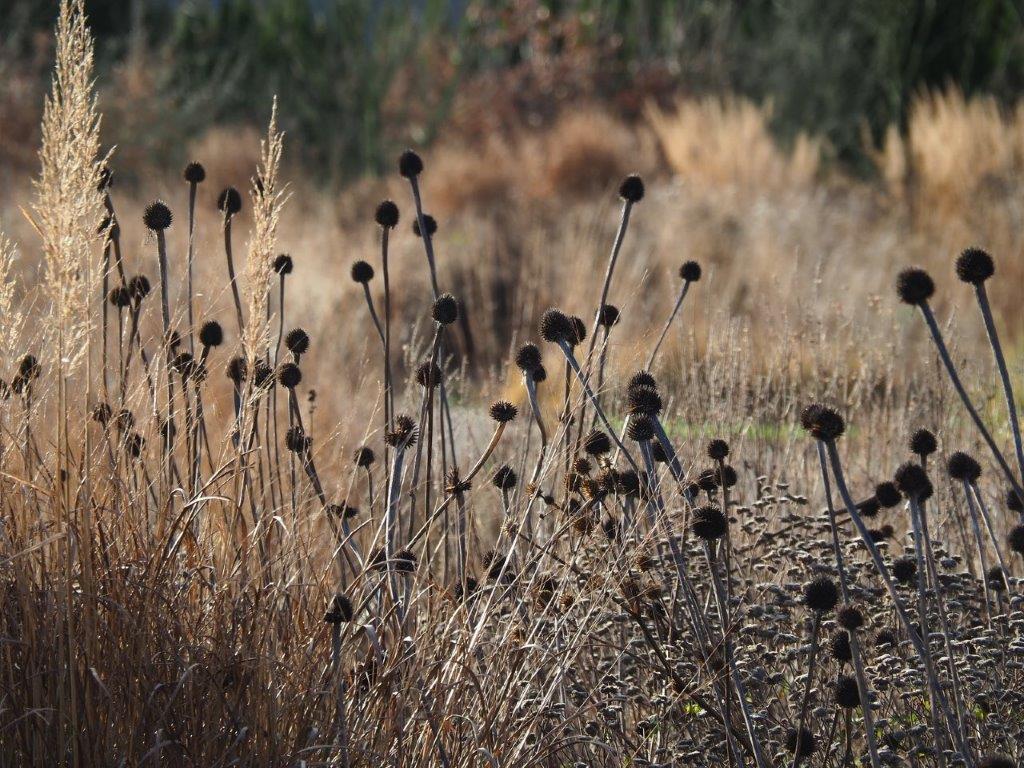Some perennials die back in autumn and winter as part of their natural growth cycle and adaptation to seasonal changes. This phenomenon is known as dormancy and serves several important purposes for the plants:
- Energy conservation: During the cold winter months, it can be challenging for plants to photosynthesize and produce energy through photosynthesis. By shedding their leaves and reducing above-ground growth, perennials conserve energy and resources. This allows them to allocate more resources to essential functions, such as root growth and maintenance, which continue underground.
- Protection from harsh conditions: Winter weather can bring freezing temperatures, snow, ice, and strong winds, all of which can be damaging to plants. By dying back and shedding their leaves, perennials reduce their vulnerability to these harsh conditions. The dormant, leafless state also minimizes the surface area through which water can be lost to evaporation.
- Avoiding frost damage: The above-ground parts of many perennials are sensitive to freezing temperatures, which can cause cellular damage. By dying back and going dormant, these plants reduce the risk of frost damage to their tender tissues. Their roots, which are insulated by the soil, are better protected.
- Disease and pest management: Winter dieback can help perennials shed any disease or pest-infested foliage, reducing the potential for pathogens and insects to overwinter and infest the plant the following year. This can help break the life cycle of certain pests and diseases.
- Resource allocation: During dormancy, perennials allocate resources primarily to their root systems, allowing them to establish a strong foundation and store energy for the upcoming growing season. This helps them recover quickly and thrive when spring arrives.
It’s important to note that not all perennials die back in winter. Some perennials are evergreen, meaning they retain their leaves or foliage throughout the year. The reason for dying back or remain evergreen is a result of the plant’s adaptation to its specific environment and climate. Some perennials in milder climates or with natural protections, such as evergreen trees and shrubs, may not need to die back to survive winter conditions.
Hardy & Eco-Friendly Grown Perennials
All our perennials are hardy and eco-friendly grown, which means they’re grown without pesticides, naturally in open soil, without being forced to grow in a heated glasshouse. Our range of potted perennials are potted in Moorland Gold potting compost, which is Soil Association certified for organic growing (recycled peat). They are the remaining varieties of our bare root perennial range. These bare roots are strong and healthy and will grow into beautiful and resilient plants. Some plants have been cut back already, but will grow into healthy and strong plants next spring.
Some extra planting tips:
- Plant out your plants as soon as possible after arrival. Autumn and Spring are the best seasons to plant perennials.
- Water newly planted perennials regularly, but don’t overwater them.
- Cut back perennials as late as possible, as many birds love the seedheads, and wildlife and insects find shelter under the leaves during winter. We cut back our perennials in the garden in January and February or when perennials are starting to look messy.
IMPORTANT NOTE WHEN PURCHASING POTTED PERENNIALS DURING AUTUMN AND WINTER PERIOD:
Some of our perennial plants are entering or have already entered their dormancy period. You will notice that some leaves and flowers of the plants you have ordered, are dying back or have already died back, and are smaller than you might have expected.
But don’t worry! This is a completely normal process, the roots are strong and resilient and they will all come back nice and healthy in spring. Please keep this in mind when ordering perennial plants in the Autumn/Winter period.


